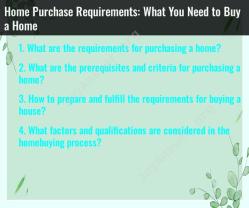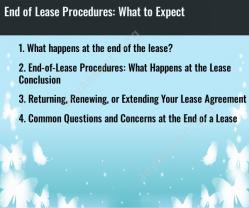Can I rent out my house and buy another?
Yes, you can rent out your current house and purchase another one. This scenario is commonly referred to as "buying a new primary residence while converting your current home into an investment property." Here are the key financial implications and considerations involved:
Financing for a New Home:
- When you purchase a new primary residence, you'll need to secure financing for the new property. Lenders typically offer different types of mortgages for primary residences compared to investment properties. Be prepared to provide financial documentation and meet credit and income requirements for the new mortgage.
Renting Out Your Current Home:
- Before renting out your current home, you may need to make some adjustments:
- Update your insurance: Inform your homeowner's insurance provider that your property is now an investment property. You may need a landlord or rental property insurance policy.
- Tax considerations: Consult with a tax professional to understand the tax implications of renting out your property. Rental income is generally taxable, and you may be eligible for certain deductions.
- Landlord responsibilities: Familiarize yourself with local landlord-tenant laws and regulations. You'll have responsibilities as a landlord, including maintenance, tenant screening, and lease management.
- Before renting out your current home, you may need to make some adjustments:
Rental Income and Expenses:
- Calculate your expected rental income based on market rates in your area. Consider all expenses associated with the rental property, including property taxes, insurance, maintenance, property management (if applicable), and potential vacancies. Ensure that the rental income covers these costs.
Mortgage on Your Current Home:
- If you have an existing mortgage on your current home, you'll need to continue making mortgage payments. Consider how these payments fit into your overall financial plan, especially if rental income doesn't fully cover them.
Down Payment and Financing for the New Home:
- Determine how you'll fund the down payment for your new primary residence. This may involve savings, proceeds from selling your current home (if applicable), or obtaining a new mortgage.
Property Management:
- Decide whether you'll manage the rental property yourself or hire a property management company. Property managers can handle tenant-related matters, maintenance, and rent collection but typically charge fees for their services.
Future Plans:
- Consider your long-term financial goals and how this real estate strategy aligns with them. Ensure that you're financially comfortable with the obligations of owning and managing two properties.
Local Real Estate Market:
- Assess the local real estate market conditions to determine whether it's a favorable time to buy a new property and whether your current property is likely to generate rental income that meets your financial goals.
Before proceeding, it's essential to thoroughly research and plan for this transition. Seek advice from financial advisors, real estate professionals, and legal or tax experts to ensure you make informed decisions that align with your financial objectives. Additionally, be aware of local laws and regulations related to rental properties, landlord responsibilities, and any specific requirements in your area.













